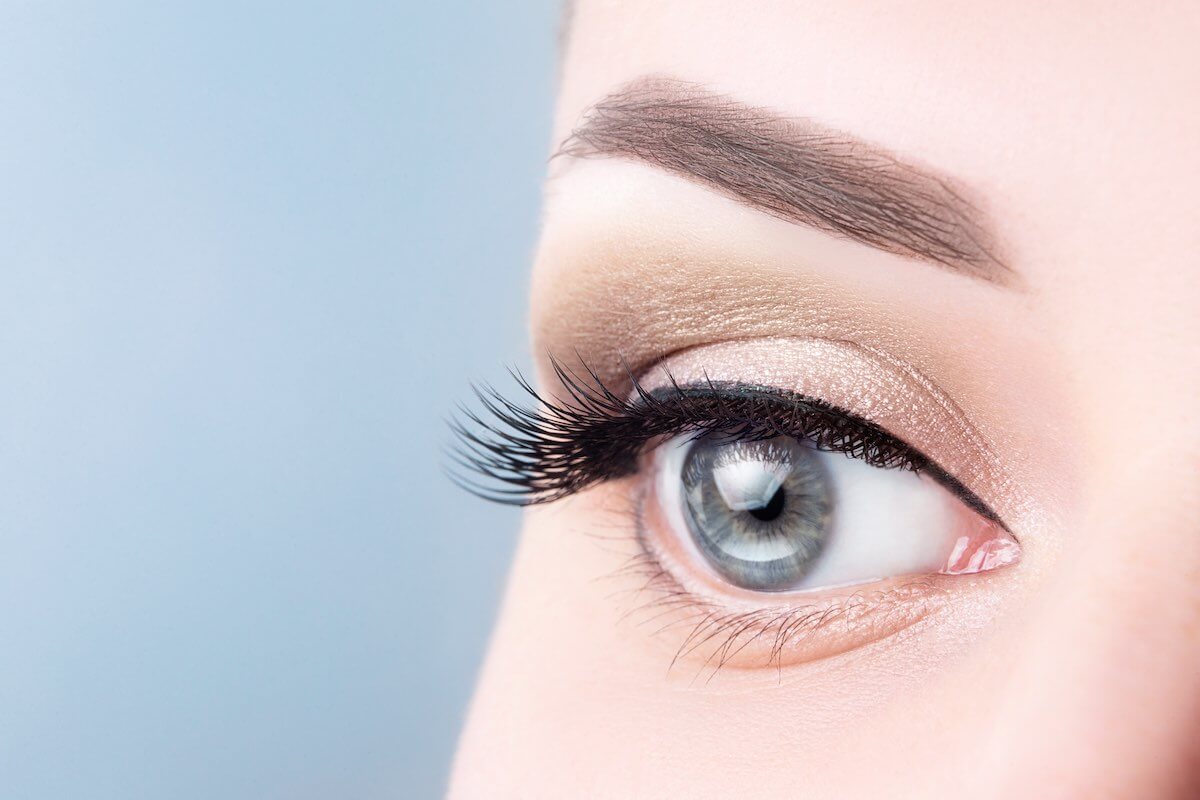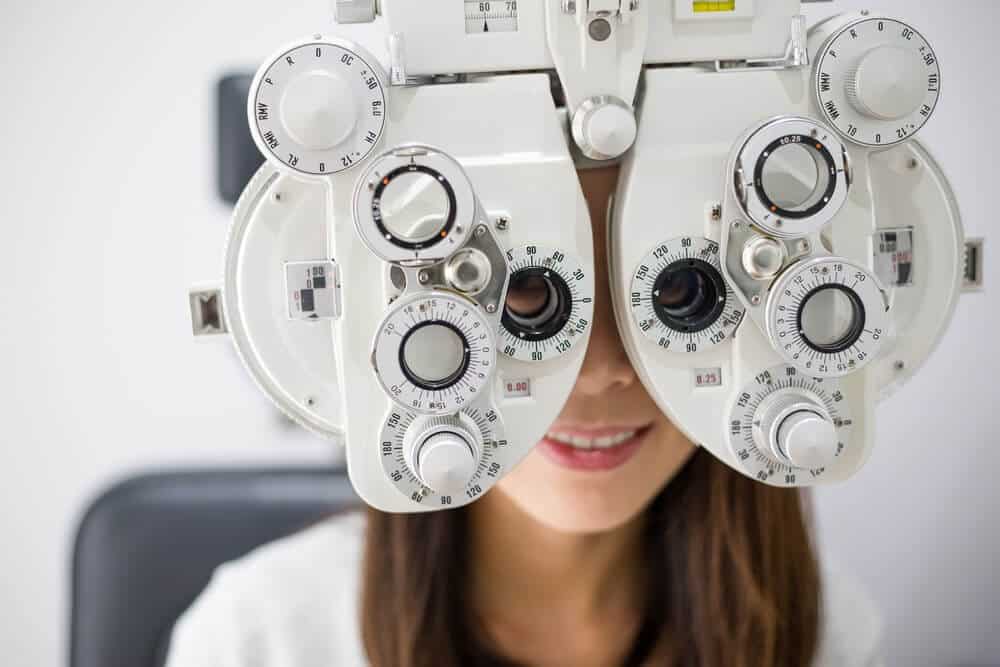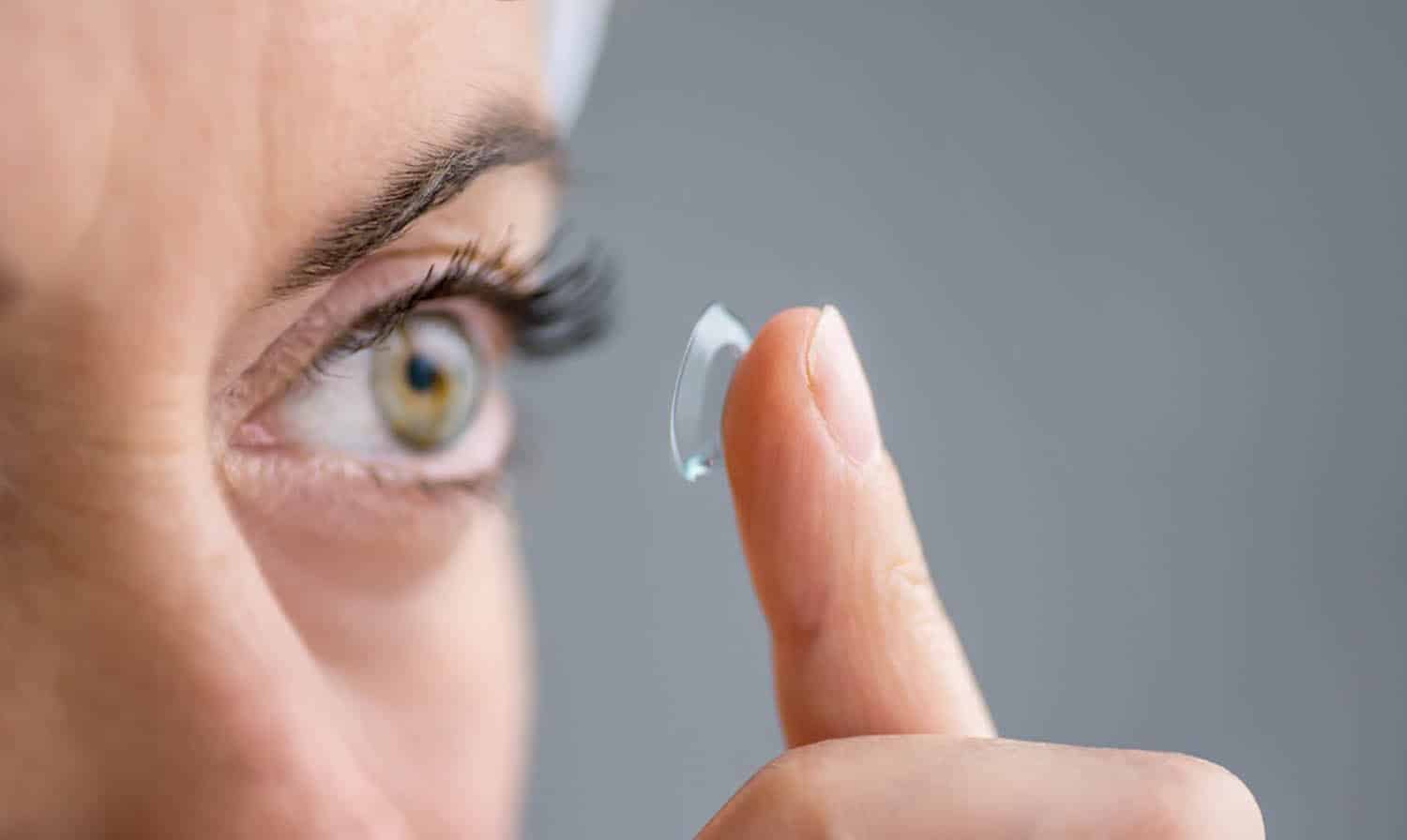The short answer? Yes. You can wear glasses and contact lenses at the same time.
[toc]Many people do this because it fixes multiple issues they might have with their vision. The glasses might help with reading while the contacts improve farsightedness. Having to deal with both glasses and contacts can be frustrating, not to mention expensive.
We’ll cover why you might be wearing both and the options you have to help in the future.
If, however, you’re already set on getting rid of your glasses and contact lenses altogether, check out our guide on laser eye surgery.
Can You Wear Glasses And Contact Lenses At The Same Time?
The short answer is YES, definitely.
The long one is a bit harder than that. Let’s dig into the common issues why people wear contacts or glasses and see if we can correct the root issue rather than treat the symptoms.
Ready To See Clearly?
Focus has a 100% 20/20 vision success rate for all common short-sighted prescriptions using it’s A-LASIK technique.
Why You Might Be Wearing Glasses and Contacts
It might sound counterintuitive to be wearing both glasses and contact lenses at the same time. However, this is something that many people ask us about and it’s more common than you might think.
It’s a straightforward solution that can deal with multiple problems a person might be having with their eyesight. For example, if you wear contact lenses to help you see objects in the distance, you might also have glasses that can be used for reading (or vice-versa).
“The need for both glasses and lenses is most common in people that develop presbyopia.”
A person might already be wearing contact lenses for long distance vision correction, but as their eyes age and lose flexibility, they need reading glasses too. This is an age-related condition that usually starts when someone is around 45.
Wearing glasses over contact lenses for reading does have some benefits, especially as you won’t need to carry around two pairs of glasses that you have to swap between.
However, the cost of glasses and lenses soon adds up and it can be frustrating to have to deal with each day. Because of this, many people look for permanent solutions that will eliminate the need for glasses and lenses.
Never Wear Glasses or Lenses Again

Laser eye surgery provides a permanent solution for patients that have a variety of eye problems. It might be the first time you’ve considered laser eye surgery, so we’ll cover some of the basics and clear up a few misconceptions.
- What Actually Happens During Surgery?
- Does Laser Eye Surgery Hurt?
- How Long Before I’m Back to Normal?
- Is it Expensive?
What Actually Happens During Surgery?
There are different procedures available depending on the issues you have with your eyesight. Your surgeon will recommend the right course of action. Once the surgery begins, a small device called a speculum is used to gently keep your eyelids apart.
If you’re receiving LASIK treatment, for example, a femtosecond laser is used to create a small flap on the cornea. This can sound a little scary, but that part of the procedure only takes 20-25 seconds. The whole process takes only around five minutes for each eye and is carried out by expert surgeons.
Does Laser Eye Surgery Hurt?

When we hear about lasers cutting small incisions in our eyes, it’s easy to let our imaginations run wild. In reality, laser eye surgery is almost completely painless.
You’ll receive anaesthetic drops before the procedure begins to prevent any pain, which work in less than five seconds. No needles are used.
Patients sometimes experience mild discomfort during the procedure as they feel the pressure of the femtosecond laser on their eye. This is more of an uncomfortable feeling, rather than any actual pain.
You’ll also be given topical antibiotic and steroid drops post-surgery to reduce pain and aid healing. Use the drops as directed in the first week after treatment.
How Long Before I’m Back to Normal?

A key obstacle that’s stopping many people from getting laser eye surgery is the impact they think it will have on their work and family life. They might have other commitments that are getting in the way.
With some procedures, like LASIK, you’ll not only experience immediate results but also be able to go back to work and drive in just a day or two.
You’ll need to attend post-treatment checkups with your surgeon to make sure everything is as it should be. All patients will come back the following day and again after a week. Additional visits happen during the next six months.
Is it Expensive?
Many people avoid laser eye surgery because they don’t think they can afford it, but how can you put a price on clear vision?
Over the years, the cost of glasses and lenses will start to rise, so it’s worth paying for the treatment and never having to pay for eye care prescriptions again.
Watch out for some clinics though, as they might hide hidden costs behind an attractive offer. For quality surgery with an expert surgeon, you should expect to pay between £4,000 and £5,000 for most prescriptions.
Want to Find Out More About Laser Eye Surgery?
Focus Clinic is the UK’s most trusted laser eye surgery clinic and the only surgery with a 100 percent success rate.
We don’t hit patients with hidden costs for aftercare. Instead, we offer a 10-year guarantee for all short-sighted procedures, so if there’s any extra treatment needed, it’s free of charge.
If you have any questions about laser eye surgery or you’d like to discuss the different procedures that are available, don’t hesitate to get in touch.

